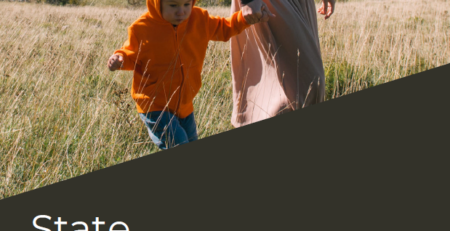November News, a DCF update on Government, Regulatory and Industry
As autumn begins to blend into winter, and we begin to turn our thoughts towards the festive season, it has remained a characteristically busy period for industry, Government and regulators across the telecoms space.
In a period that saw a Halloween eve Autumn Budget, indications that an industry shakeup mega merger could get the green light , and the US elections, there is a lot to digest ahead of the Christmas break. The Digital Connectivity Forum has been hard at work, considering what these new changes mean for the industry, as well as championing new and ongoing work across a variety of other important sector specific challenges.
During October, the Digital Connectivity Forum held two important workshops, focusing on local authorities as connectivity enablers and the resilience of networks. With topics ranging from how to improve communication and engagement, planning barriers, climate resilience, accidental damage, deliberate physical attack and future threats such as supply chain resilience, there was an abundance of fascinating conversation as we align on ways to drive industry progress and unlock the societal value of quality connectivity for everyone.
The workshops both involved key stakeholders across industry, Government and Ofcom, as well as other workshop specific attendees, including local authorities and relevant trade associations.
In addition to our focus on local authority engagement and resilience, work has been ongoing for the launch of our upcoming Diversity & Inclusion Working Group, which will be formally launched on 11 December.
Diversity & Inclusion remains an important topic in telecoms. Following the release of our 2023 report, ‘Diversity in Telecoms’, which was commissioned at the request of DCMS, we saw that the report’s assessment of diversity across UK telecoms highlighted areas that need support. In addition to this, it highlighted data gaps and areas that need greater understanding.
In response to this, we decided to launch a working group that is dedicated to tackling inclusion across all protected characteristics, as well as those which are not protected, and yet form a critical part of the diversity & inclusion picture, such as socio-economic background.
Ensuring true, and universally embedded, inclusion across the sector is something the Digital Connectivity Forum is passionate about, and we cannot wait to get to work on these valuable and important areas.
We are delighted to announce that Dame Melanie Dawes, CEO of Ofcom will be joining as the group’s patron, and we are delighted to work with her and the group members to bring you future updates on our activity as we raise the profile of diversity whilst building practical routes to inclusion success.
Government News
The release of the Autumn Budget brought with it announcements that will impact telecoms and wider industries. It confirmed that the new Government will be investing over £500 million across 2025 to 2026 as part of the delivery of the ongoing Project Gigabit and Shared Rural Network programmes. This marked a continued commitment to ensuring connectivity to remote and underserved parts of the UK, and the upholding of the target for full gigabit broadband coverage by 2030.
Rises to employer national insurance contributions will be a change that is felt not only across telecoms but wider business, as employers adapt to these significant changes to their tax burden. It remains to be seen how this will impact future spending and investment.
On 23 October, Government released an update to its final stage impact assessment of the Online Safety Act, which was first published in 2022. The update comes as Ofcom recently released an update on its work to implement the Online Safety Act, including timeline updates on phased rollout between 2024 and 2026 and that, as of December 2024, services will need to act to comply with their duties as outlined by the Online Safety Act.
The Government update reflects several major policy changes made during passage of the Online Safety Bill.
Finally, on the 11 November, Government published an update to the projects selected for the Rural Connectivity Accelerator programme. The programme seeks to identify projects that will enhance overall understanding of the connectivity needs of businesses across rural and very hard to reach parts of the UK.
To do this, pilot projects will consider various challenges and solutions, including the exploration of existing barriers to deployment and adoption, as well as connectivity solutions, such as alternative methods of delivery, including broadband, satellite and wireless.
As the UK shifts to a more online consumption pattern, Government has published a report looking at the ‘Future of TV distribution’. The report examines areas including the changing habits of UK viewers, as well as their platform choices and how a changing society and digital shift is changing the way we consume our media. It looks to predict how these changes will look by 2040, including estimating that, based on current market dynamics, by this time 71% will rely exclusively on internet delivery for their TV. This increasing reliance on internet for TV consumption will in turn have effects on demand and the importance of quality connectivity availability and reliability.
Regulatory News
Ofcom has announced its final draft auction regulations for a plan to auction off millimetre wave (mmW) radio spectrum frequency across the 26GHz and 40GHz bands. This spectrum will be used by mobile operators in the delivery of faster 5G services.
The auction process had originally been delayed as Ofcom waited for the result of the proposed merger between Vodafone and Three. It will see the awarding of several 15-year, fixed term licenses for high density areas across 68 UK major towns and cities, alongside some smaller low-density allocations within the cities through the Shared Access licensing framework.
The Competition and Markets Authority (CMA), has provided an indication that the merger of Vodafone and Three may be given the green light with the publication of its Remedies Working Paper.
Following initial competition concerns identified by the CMA in September, the paper sets out the CMA’s provisional views on the subsequent remedy package proposed by Vodafone and Three.
The commitments included:
- Agreeing to make their network coverage commitments legally binding with this being overseen and enforced by Ofcom
- Agreeing to sell spectrum to Virgin Media O2 upon approval
- Maintain tariffs at £10 or below for two years from the completion for social tariff customers
- Providing reference offers that encourages MVNOs to access additional network capacity
The provisional indication from the CMA comes ahead of the 7 December deadline and suggests that the CMA believes that the proposed commitments “could solve competition concerns identified in September and allow the merger to go ahead.”.
However, the Paper included several short-term protections proposed ‘to ensure that retail consumers and mobile virtual network operators can continue to secure good deals. These included proposals that would require Vodafone and Three to:
- Deliver their joint network plan as part of a legal obligation overseen by Ofcom and the CMA.
- Commit to retain certain existing mobile tariffs and data plans for at least 3 years,
- Commit to pre-agreed prices and contract terms to ensure that Mobile Virtual Network Operators can obtain competitive wholesale deals.
The deadline for a final decision remains set at the 7 December.
As the December deadline approaches for the implementation of the Online Safety Act, Ofcom issued an update on the 26 October, highlighting its progress since the Online Safety Act became law.
The update reminded companies of their obligation to comply from December 2024, as well as outlining further dates that form part of the phasic rollout of the Act.
In addition, Ofcom published its first consultation covering fee setting and penalty regime as part of the enforcement of the Online Safety Act. The Act requires that Ofcom’s operating costs are covered by providers of the regulated services through a fee’s regime. It further stipulates that calculations of fees should be based on providers qualifying worldwide revenue.
The consultation is open until January 9, 2025.
Finally, Ofcom announced the appointment of Tamara Ingram OBE to their Board as Deputy Chair, alongside Lord Allan of Hallam who will join as a Non-Executive Director. Both Tamara and Allan have been appointed on four-year terms and will provide strategic direction to Ofcom and its executive.
Industry News
EE announced in October the 16 new locations who will be receiving a major 5G standalone upgrade. The locations announced will be completed and live by the end of the year and will bring EE’s 5G standalone network to more than 30 major towns and cities across the UK. Areas with 5G Standalone will experience a 95% outdoor coverage rate, improving communications and opportunities across these locations.
In November, VMO2 announced the launch of a new Small Business Partnerships initiative which brings together Virgin StartUp, GoDaddy, and egg. The Small Business Partnership aims to deliver exclusive offers to small business customers and drive SME growth across the UK by equipping them with the connectivity and technology they need to succeed and scale.
Finally, BT seems to be moving closer toward selling their Global division, which is responsible for selling internet, phone and other business solutions to multinational corporate clients. Whilst industry analysts have suggested potential buyers include Verizon, Amazon and Microsoft, it could also remain that BT’s global division is apportioned and sold more geographically, with some reports suggesting companies such as Viatel and Telecom Italia have expressed an interest in geographically specific areas across Ireland and Italy.






